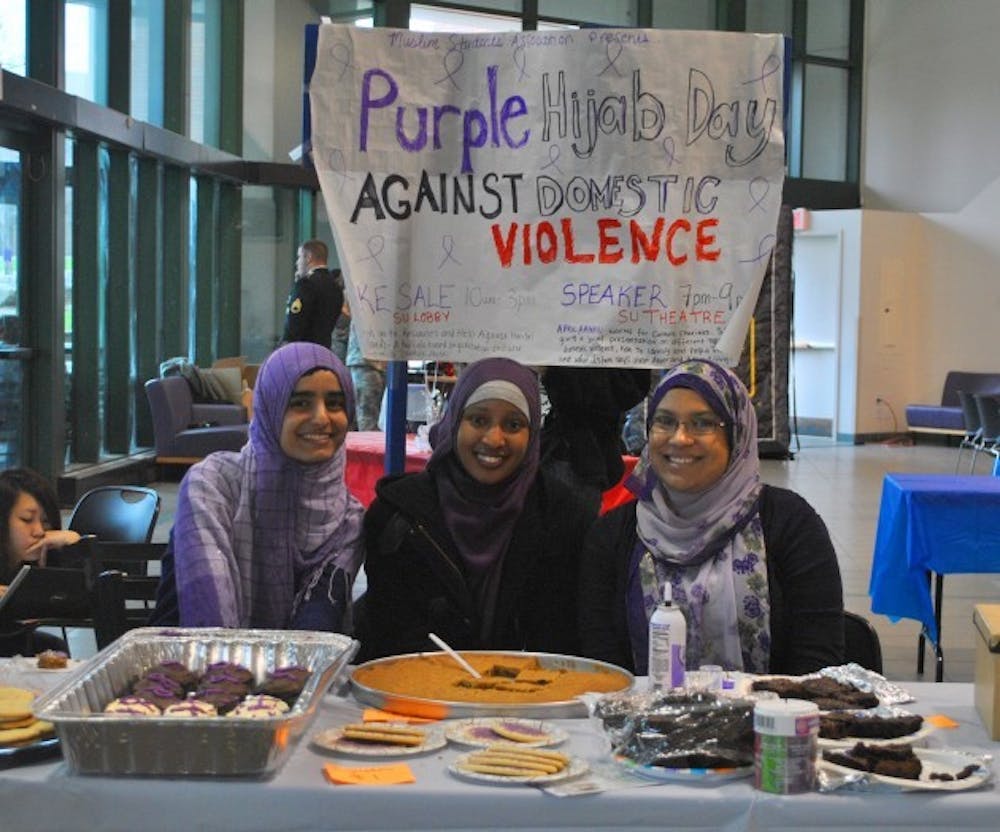Cookies, cupcakes and brownies are much more appealing to most people, than broken bones, bruises and death.
On Tuesday, the Muslim Student Association held Purple Hijab Day to help bring awareness and an end to domestic violence. The day included a bake sale in the Student Union followed by a guest speaker in the SU Theater. The proceeds of the bake sale will go to Resources And Help Against Marital Abuse (RAHAMA).
The date was originally set to coincide with the anniversary of the brutal death of Aasiya Zubair Hassan at the hands of her husband on Feb. 12, 2009. Hassan was beheaded in an alleged "honor killing" that stemmed from a history of domestic violence.
"[The founders of RAHAMA] were friends of Aasiya Zubair before she was killed – it just hit our Muslim community really hard, and since then they've been working as an outlet for women who are being abused," said Anem Shariff, a senior anthropology major and the community service coordinator for the Muslim Student Association.
Shariff says that Islam certainly does not advocate for honor killings or domestic violence and that Muslim women are held in much higher status than popular culture realizes. Domestic violence is not okay for any reason and Purple Hijab Day is a way to get that message out there.
April Arman, the speaker at the event, works for Catholic Charities of Buffalo as well as being a founding member of RAHAMA.
Purple Hijab Day is not just about ending domestic violence in Muslim homes, though that is the focus. MSA and other advocates also wish to combat misperceptions and bias in the media and elsewhere that people may have toward the Islamic faith.
"What you see in the media about how Islam treats its women, especially with the French ban on the veil, it's like a lot of it is misunderstanding and people are blaming an institution, a religion, for what a small number of its people do," Shariff said.
Email: features@ubspectrum.com





